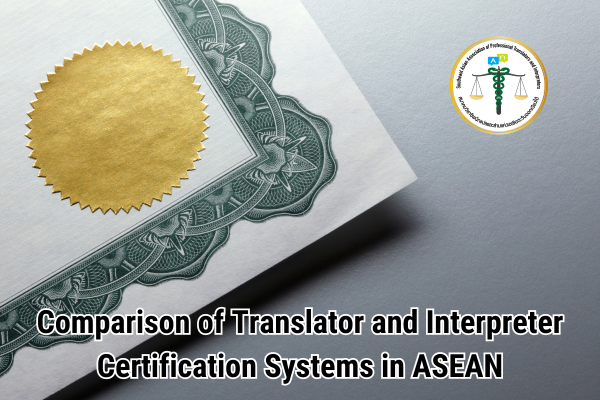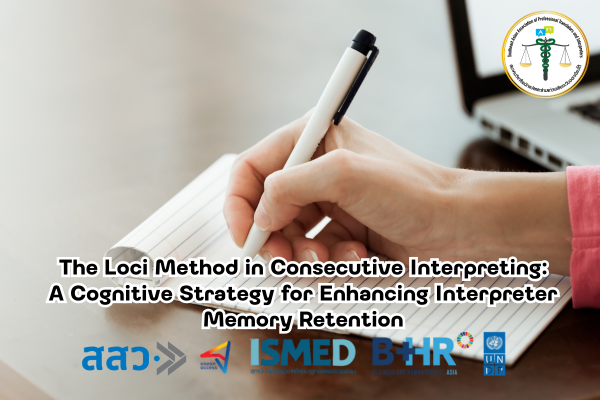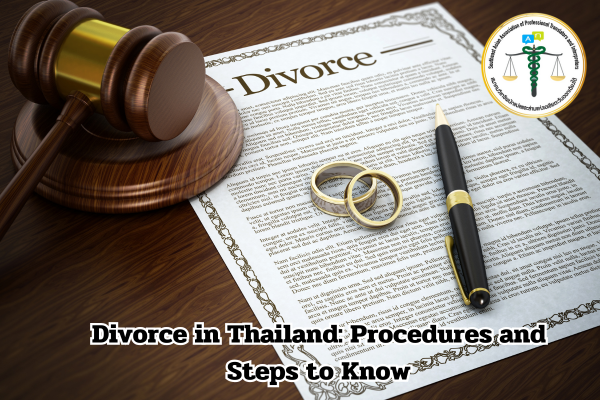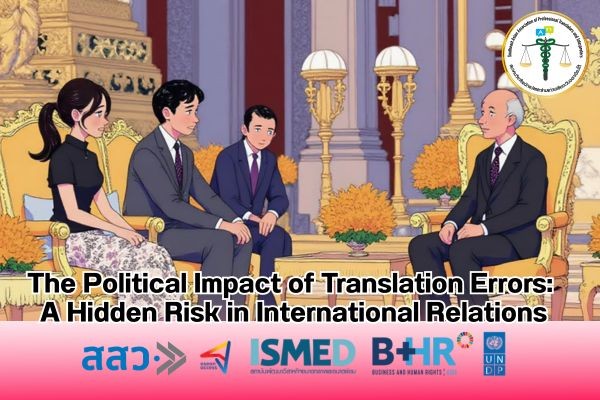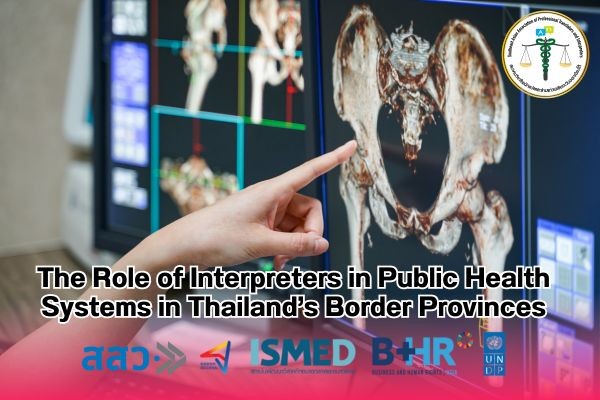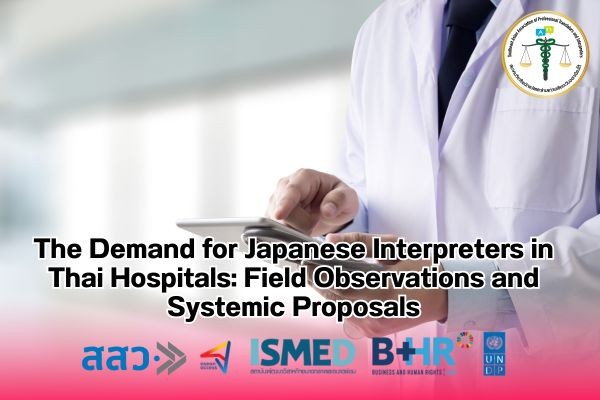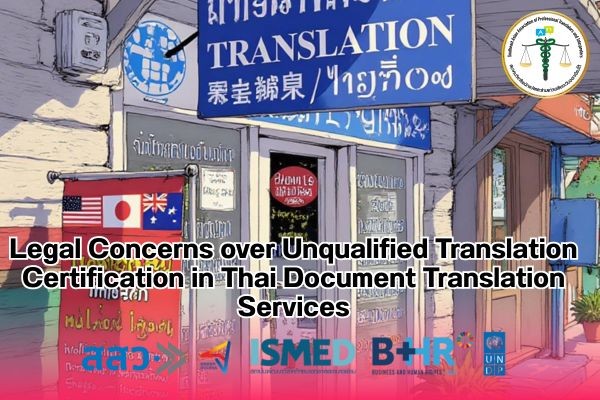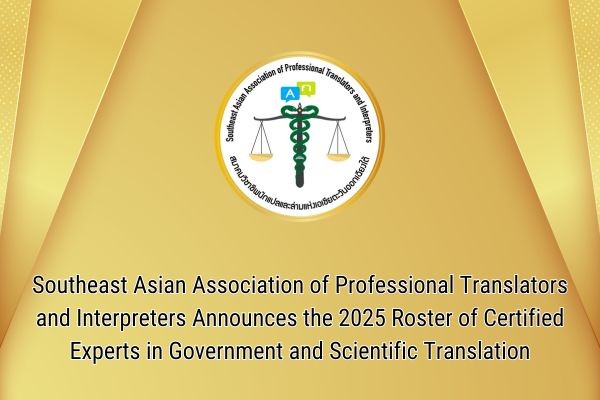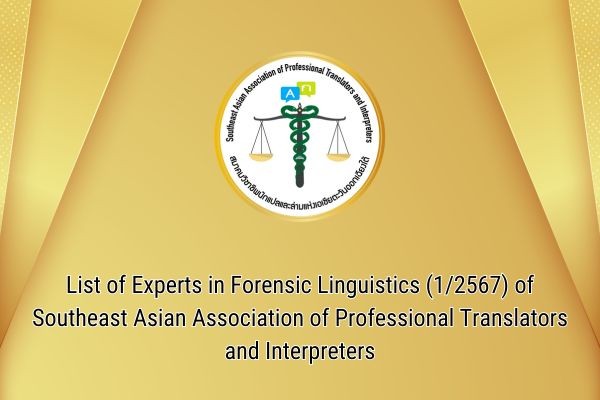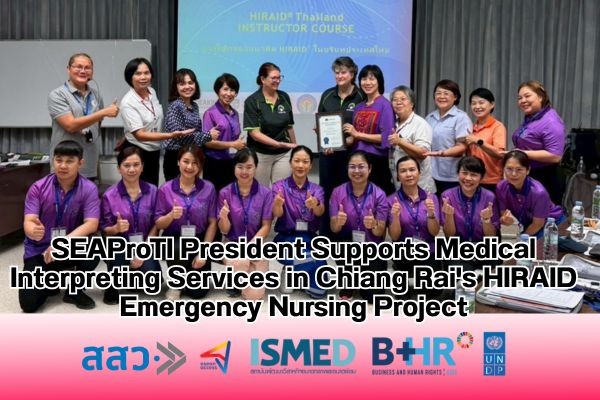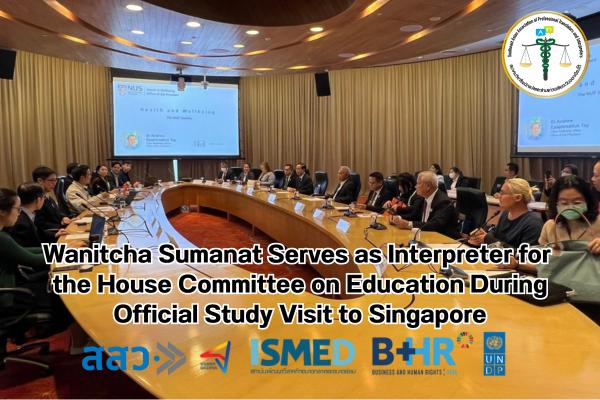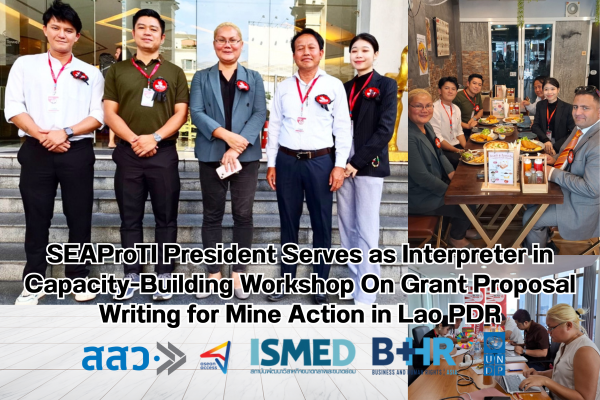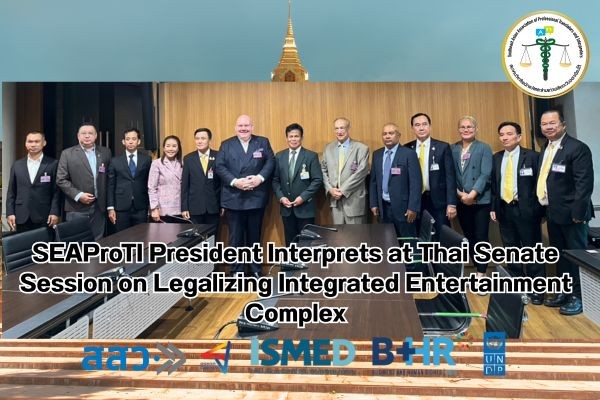Comparison of Translator and Interpreter Certification Systems in ASEAN
Translation and interpreting are crucial professions in ASEAN, a region comprising multiple countries with different official languages. The certification and recognition of translators and interpreters vary across countries. Some have an official “Sworn Translator” system, while others rely on professional association certifications. This article compares the certification systems of translators and interpreters in the 10 ASEAN member states.
Comparison of Translator and Interpreter Certification Systems in ASEAN
| Country | Sworn Translator System | Main Body for Certification | Legal Recognition |
|---|---|---|---|
| Indonesia | Yes (by Governor of Jakarta) | LSP (Lembaga Sertifikasi Profesi) | Required for legal documents |
| Thailand | No Sworn Translators | SEAProTI (Southeast Asian Association of Professional Translators and Interpreters) | Must be certified by SEAProTI for legal document translation |
| Malaysia | No Sworn Translators | ITBM (Institute of Translation & Book Malaysia), DBP (Dewan Bahasa dan Pustaka) | Must be certified by ITBM or DBP |
| Singapore | No Sworn Translators | Singapore Translators and Interpreters Association (STIA) | Translation must be notarized by Notary Public or lawyer |
| Philippines | No Sworn Translators | Supreme Court-accredited translators | Philippines Supreme Court accredits translators for specific legal cases |
| Vietnam | Yes | Ministry of Justice of Vietnam | Must be appointed by the Ministry of Justice |
| Laos | No Sworn Translators | Lao Translators & Interpreters Association (LTIA) | Must be certified by relevant organizations |
| Cambodia | Yes | Ministry of Justice of Cambodia | Must pass an exam and be officially appointed |
| Myanmar | No Sworn Translators | Myanmar Translators Association (MTA) | Must be certified by a professional association |
| Brunei | No Sworn Translators | Dewan Bahasa dan Pustaka Brunei (DBP Brunei) | Must be certified by government agencies |
Details of Each Country
1. Indonesia: Official Sworn Translator System
Indonesia is one of the few ASEAN countries with an official “Sworn Translator” system. Candidates must pass an exam conducted by LSP and be appointed by the Governor of Jakarta. Translations certified by sworn translators have immediate legal validity.
2. Thailand: Certified Translator System by SEAProTI
Thailand has a Certified Translator system overseen by SEAProTI. Translators certified by SEAProTI can translate legal documents and obtain authentication from government agencies such as the Department of Consular Affairs, Ministry of Foreign Affairs. Although Thailand does not have a Sworn Translator system like Indonesia, this certification ensures a clear professional standard.
3. Malaysia: Certification by ITBM and DBP
Malaysia does not have sworn translators but provides certification through Institute of Translation & Book Malaysia (ITBM) and Dewan Bahasa dan Pustaka (DBP). Translators handling legal documents must go through certification from these agencies.
4. Singapore: Reliance on Notary Public
Singapore does not have an official Sworn Translator system, but translations must be notarized by a Notary Public or a lawyer for legal use. Professional organizations like STIA play a role in developing industry standards.
5. Philippines: Accreditation by the Supreme Court
The Philippines does not have a sworn translator system, but the Supreme Court can accredit translators for specific legal cases. This means translations used in court must be approved on a case-by-case basis.
6. Vietnam: Appointment by the Ministry of Justice
Vietnam has a Sworn Translator system similar to Indonesia. Translators must be appointed by the Ministry of Justice of Vietnam and are authorized to translate legal documents.
7. Laos: Certification by LTIA
Laos does not have a sworn translator system but has Lao Translators & Interpreters Association (LTIA), which officially certifies translators. Legal document translations must be authenticated by relevant organizations.
8. Cambodia: Sworn Translator System under the Ministry of Justice
Cambodia has a Sworn Translator system, where translators must be officially appointed by the Ministry of Justice of Cambodia after passing an exam.
9. Myanmar: Certification by MTA
Myanmar does not have a sworn translator system. Translators must be certified by Myanmar Translators Association (MTA) to work in legal document translation.
10. Brunei: Certification by DBP Brunei
Brunei does not have a sworn translator system, but Dewan Bahasa dan Pustaka Brunei (DBP Brunei) is responsible for certifying translators who handle legal document translation.
Conclusion
Among ASEAN countries, Indonesia, Vietnam, and Cambodia are the only ones with an official Sworn Translator system. Other countries rely on professional certification through associations or government-endorsed institutions. Translators handling legal documents must adhere to different regulations depending on the country, ensuring compliance with legal standards.
References
-
Websites of respective professional associations
-
Ministries of Justice in each country
-
Information from international translation organizations such as FIT and ATA
SEAProTI’s certified translators, translation certification providers, and certified interpreters:
The Southeast Asian Association of Professional Translators and Interpreters (SEAProTI) has officially announced the criteria and qualifications for individuals to register as “Certified Translators,” “Translation Certification Providers,” and “Certified Interpreters” under the association’s regulations. These guidelines are detailed in Sections 9 and 10 of the Royal Thai Government Gazette, issued by the Secretariat of the Cabinet under the Office of the Prime Minister of the Kingdom of Thailand, dated July 25, 2024, Volume 141, Part 66 Ng, Page 100.
To read the full publication, visit: the Royal Thai Government Gazette
เปรียบเทียบระบบการรับรองนักแปลและล่ามในอาเซียน
17 กุมภาพันธ์ 2568, กรุงเทพมหานคร – การแปลเอกสารและการล่ามเป็นอาชีพที่มีความสำคัญในอาเซียน เนื่องจากภูมิภาคนี้ประกอบด้วยหลายประเทศที่มีภาษาราชการแตกต่างกัน การรับรองคุณสมบัติของนักแปลและล่ามมีความแตกต่างกันไปในแต่ละประเทศ บางประเทศมีระบบ “นักแปลสาบานตน” (Sworn Translator) อย่างเป็นทางการ ขณะที่บางประเทศใช้ระบบการรับรองจากองค์กรวิชาชีพ บทความนี้จะเปรียบเทียบระบบการรับรองนักแปลและล่ามใน 10 ประเทศสมาชิกอาเซียน
เปรียบเทียบระบบการรับรองนักแปลและล่ามในอาเซียน
บทนำ
การแปลเอกสารและการล่ามเป็นอาชีพที่มีความสำคัญในอาเซียน เนื่องจากภูมิภาคนี้ประกอบด้วยหลายประเทศที่มีภาษาราชการแตกต่างกัน การรับรองคุณสมบัติของนักแปลและล่ามมีความแตกต่างกันไปในแต่ละประเทศ บางประเทศมีระบบ “นักแปลสาบานตน” (Sworn Translator) อย่างเป็นทางการ ขณะที่บางประเทศใช้ระบบการรับรองจากองค์กรวิชาชีพ บทความนี้จะเปรียบเทียบระบบการรับรองนักแปลและล่ามใน 10 ประเทศสมาชิกอาเซียน
การเปรียบเทียบระบบการรับรองนักแปลและล่ามในอาเซียน
| ประเทศ | ระบบนักแปลสาบานตน | องค์กรรับรองหลัก | การยอมรับทางกฎหมาย |
|---|---|---|---|
| อินโดนีเซีย | มี (โดยผู้ว่าการกรุงจาการ์ตา) | LSP (Lembaga Sertifikasi Profesi) | ใช้สำหรับเอกสารกฎหมาย |
| ไทย | ไม่มีนักแปลสาบานตน | SEAProTI (สมาคมวิชาชีพนักแปลและล่ามแห่งเอเชียตะวันออกเฉียงใต้) | ได้รับการรับรองจาก SEAProTI เพื่อแปลเอกสารกฎหมาย |
| มาเลเซีย | ไม่มีนักแปลสาบานตน | ITBM (Institute of Translation & Book Malaysia), DBP (Dewan Bahasa dan Pustaka) | ได้รับการรับรองจาก ITBM หรือ DBP |
| สิงคโปร์ | ไม่มีนักแปลสาบานตน | Singapore Translators and Interpreters Association (STIA) | การแปลต้องผ่าน Notary Public หรือทนายความ |
| ฟิลิปปินส์ | ไม่มีนักแปลสาบานตน | Supreme Court-accredited translators | ศาลสูงฟิลิปปินส์รับรองนักแปลเฉพาะคดีความ |
| เวียดนาม | มี | Ministry of Justice of Vietnam | ได้รับการแต่งตั้งจากกระทรวงยุติธรรม |
| ลาว | ไม่มีนักแปลสาบานตน | Lao Translators & Interpreters Association (LTIA) | ได้รับการรับรองจากองค์กรที่เกี่ยวข้อง |
| กัมพูชา | มี | Ministry of Justice of Cambodia | ผ่านการสอบและได้รับการแต่งตั้ง |
| เมียนมา | ไม่มี | Myanmar Translators Association (MTA) | ได้รับการรับรองจากองค์กรวิชาชีพ |
| บรูไน | ไม่มี | Dewan Bahasa dan Pustaka Brunei (DBP Brunei) | ได้รับการรับรองจากหน่วยงานรัฐบาล |
รายละเอียดแต่ละประเทศ
1. อินโดนีเซีย: ระบบนักแปลสาบานตนที่เป็นทางการ
อินโดนีเซียเป็นหนึ่งในไม่กี่ประเทศอาเซียนที่มีระบบ “นักแปลสาบานตน” อย่างเป็นทางการ ผู้ที่ต้องการเป็นนักแปลสาบานตนต้องสอบผ่าน LSP และได้รับการแต่งตั้งจาก ผู้ว่าการกรุงจาการ์ตา เอกสารแปลที่ได้รับการรับรองจากนักแปลสาบานตนในอินโดนีเซียมีผลทางกฎหมายทันที
2. ไทย: ระบบนักแปลรับรองโดย SEAProTI
ไทยมีระบบ นักแปลรับรอง โดย SEAProTI นักแปลที่ผ่านการรับรองจาก SEAProTI สามารถแปลเอกสารทางกฎหมายและยื่นขอรับรองจากหน่วยงานราชการได้ เช่น กรมการกงสุล กระทรวงการต่างประเทศ แม้ว่าจะไม่มีนักแปลสาบานตนแบบอินโดนีเซีย แต่ระบบนี้ช่วยให้มีมาตรฐานที่ชัดเจนสำหรับนักแปลมืออาชีพ
3. มาเลเซีย: การรับรองโดย ITBM และ DBP
มาเลเซียไม่มีนักแปลสาบานตน แต่มีระบบรับรองผ่าน Institute of Translation & Book Malaysia (ITBM) และ Dewan Bahasa dan Pustaka (DBP) นักแปลที่ต้องการทำงานในเอกสารทางกฎหมายต้องผ่านกระบวนการรับรองจากหน่วยงานเหล่านี้
4. สิงคโปร์: ระบบที่พึ่งพา Notary Public
ในสิงคโปร์ นักแปลไม่มีระบบสาบานตนโดยตรง แต่เอกสารแปลต้องได้รับการรับรองจาก Notary Public หรือทนายความเพื่อใช้ในทางกฎหมาย องค์กรวิชาชีพเช่น STIA มีบทบาทในการพัฒนามาตรฐานวิชาชีพ
5. ฟิลิปปินส์: การรับรองโดยศาลสูง
ฟิลิปปินส์ไม่มีนักแปลสาบานตนโดยตรง แต่มีระบบที่ศาลสูงสามารถแต่งตั้งนักแปลเฉพาะคดีได้ ทำให้การแปลที่ใช้ในกระบวนการศาลต้องได้รับการอนุมัติเป็นกรณีพิเศษ
6. เวียดนาม: การแต่งตั้งโดยกระทรวงยุติธรรม
เวียดนามมีระบบนักแปลสาบานตนที่คล้ายกับอินโดนีเซีย นักแปลต้องได้รับการแต่งตั้งโดย Ministry of Justice of Vietnam และมีอำนาจในการแปลเอกสารทางกฎหมาย
7. ลาว: การรับรองโดย LTIA
ลาวไม่มีระบบนักแปลสาบานตน แต่มี Lao Translators & Interpreters Association (LTIA) ที่รับรองนักแปลอย่างเป็นทางการ การแปลเอกสารทางกฎหมายต้องผ่านการรับรองจากหน่วยงานที่เกี่ยวข้อง
8. กัมพูชา: ระบบนักแปลสาบานตนโดยกระทรวงยุติธรรม
กัมพูชามีระบบนักแปลสาบานตนที่ได้รับการแต่งตั้งจาก Ministry of Justice of Cambodia ผู้สมัครต้องสอบผ่านก่อนจึงจะได้รับสิทธิในการแปลเอกสารทางกฎหมาย
9. เมียนมา: การรับรองผ่าน MTA
เมียนมาไม่มีระบบนักแปลสาบานตน นักแปลต้องได้รับการรับรองจาก Myanmar Translators Association (MTA) เพื่อทำงานด้านการแปลเอกสารทางกฎหมาย
10. บรูไน: การรับรองโดย DBP Brunei
บรูไนไม่มีระบบนักแปลสาบานตน แต่ Dewan Bahasa dan Pustaka Brunei (DBP Brunei) มีหน้าที่รับรองนักแปลที่สามารถแปลเอกสารทางกฎหมายได้
สรุป
แม้ว่าไทยจะไม่มีระบบนักแปลสาบานตนแบบอินโดนีเซีย แต่มีระบบ นักแปลรับรอง ที่ดูแลโดย SEAProTI ทำให้มั่นใจได้ว่าการแปลเอกสารกฎหมายมีมาตรฐานที่เชื่อถือได้
เกี่ยวกับนักแปลรับรอง ผู้รับรองการแปล และล่ามรับรองของสมาคมวิชาชีพนักแปลและล่ามแห่งเอเชียตะวันออกเฉียงใต้
สมาคมวิชาชีพนักแปลและล่ามแห่งเอเชียตะวันออกเฉียงใต้ (SEAProTI) ได้ประกาศหลักเกณฑ์และคุณสมบัติผู้ที่ขึ้นทะเบียนเป็น “นักแปลรับรอง (Certified Translators) และผู้รับรองการแปล (Translation Certification Providers) และล่ามรับรอง (Certified Interpreters)” ของสมาคม หมวดที่ 9 และหมวดที่ 10 ในราชกิจจานุเบกษา ของสำนักเลขาธิการคณะรัฐมนตรี ในสำนักนายกรัฐมนตรี แห่งราชอาณาจักรไทย ลงวันที่ 25 ก.ค. 2567 เล่มที่ 141 ตอนที่ 66 ง หน้า 100 อ่านฉบับเต็มได้ที่: นักแปลรับรอง ผู้รับรองการแปล และล่ามรับรอง


